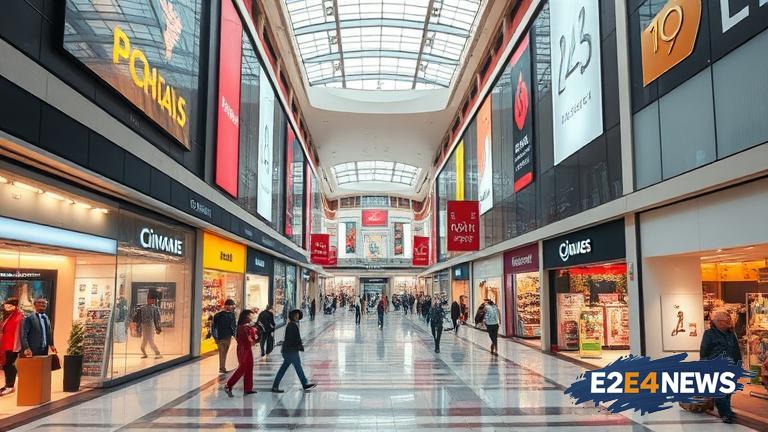The Indian retail sector is undergoing a notable transformation, with a marked decline in high street leasing and a corresponding increase in mall-based retail. According to recent reports, high street leasing in India has fallen by 26% in the second quarter of 2025, indicating a significant shift in the retail landscape. This decline can be attributed to various factors, including rising rents, increasing competition, and a preference for mall-based retail among consumers. Malls, on the other hand, are witnessing a surge in popularity, with many retailers opting for mall spaces over high street locations. The benefits of mall-based retail, including increased footfall, better infrastructure, and a more comprehensive shopping experience, are driving this trend. Furthermore, malls offer a more secure and convenient shopping environment, which is a major draw for consumers. The decline in high street leasing is also being driven by the increasing costs associated with maintaining a high street presence, including high rents and utility costs. In contrast, malls offer a more cost-effective and efficient retail solution, with shared amenities and services. The Indian retail market is highly competitive, with many international and domestic players vying for market share. The shift towards mall-based retail is expected to continue, with many retailers opting for omnichannel strategies that combine online and offline retail. The growth of e-commerce in India has also contributed to the decline of high street leasing, as consumers increasingly prefer the convenience and flexibility of online shopping. However, malls are well-positioned to capitalize on the growth of e-commerce, with many malls incorporating online retail platforms and services into their offerings. The decline in high street leasing is not limited to India, with many global retail markets experiencing similar trends. The rise of experiential retail, which focuses on creating immersive and engaging shopping experiences, is also driving the growth of mall-based retail. Malls are investing heavily in creating unique and engaging experiences, including entertainment options, dining, and lifestyle services. The Indian government has also introduced various initiatives to support the growth of the retail sector, including policies to promote ease of doing business and improve infrastructure. The retail sector is a significant contributor to India’s economy, accounting for approximately 10% of the country’s GDP. The shift towards mall-based retail is expected to have a positive impact on the economy, with increased investment and job creation in the retail sector. The growth of mall-based retail is also expected to drive innovation and entrepreneurship in the retail sector, with many new and innovative retail concepts emerging. In conclusion, the decline in high street leasing and the growth of mall-based retail in India are significant trends that are expected to continue in the coming years. The benefits of mall-based retail, including increased footfall, better infrastructure, and a more comprehensive shopping experience, are driving this trend. As the Indian retail market continues to evolve, it is likely that mall-based retail will play an increasingly important role in shaping the retail landscape.
